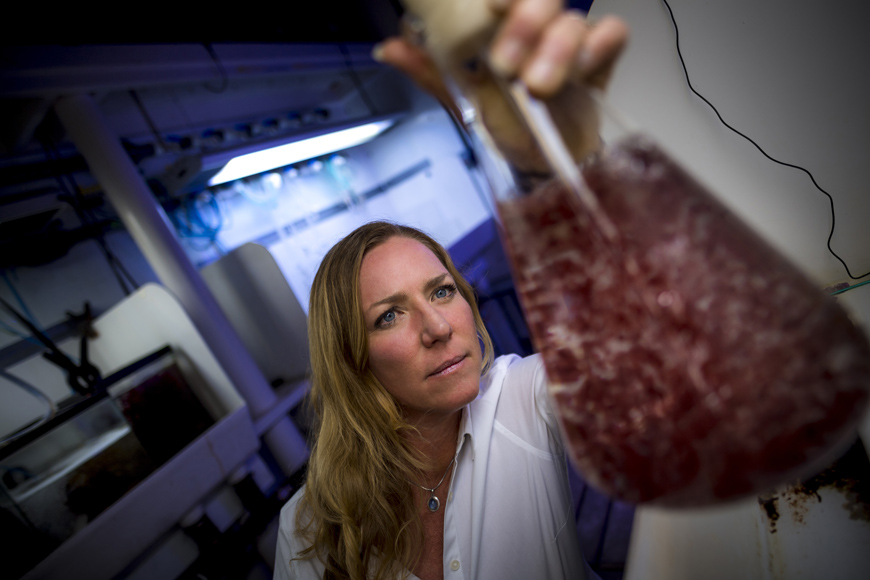The temperature of the planet is on the rise. As scientists look for ways to prevent global warming, and some oil companies scramble to develop renewable energy sources, like wind technology, fingers are increasingly pointed towards other factors that contribute to global warming, one of which is the cow.
We love cows, but they pose environmental issues
Cow manure and burps send methane, a harmful greenhouse gas, into the air. Cows harbor Archaebacteria in their stomachs, which allow them to digest plant material, but Archaebacteria make methane in the process. Methane traps the sun’s energy, raising the temperature near the earth’s surface, a situation that could have dire consequences for the planet and our survival. This issue has prompted legislation requiring the immediate reduction of methane emissions.
How the ocean can help
Given our consumption of meat and milk, scientists at the University of California, Davis, including Ermeas Kebreab and Frank Mitloehner, have made significant progress in making cows a more efficient source of these dietary products, therefore requiring fewer cows to support the demand. Fewer cows means lower methane emissions.
Researchers have also devised ways to isolate and quantify methane emissions from cow burps. By placing the cow’s head into a chamber while it’s eating and burping, scientists can test how different foods affect the amount of methane emitted. With these systems, Kebreab’s research showed that a nutritious, subtropical, red algae seaweed called Asparagopsis, reduces methane emissions from cows by more than 50%. Cows like it too, and it doesn’t change the taste of the meat produced.
Many issues need to be solved
How can we make enough red algae seaweed to feed all the cows? Experiments in the laboratory of Jennifer Smith, a marine biologist at the Scripps Institution of Oceanography of the University of California, San Diego, have focused on understanding the life cycle, biology, and growth requirements of Asparagopsis.

It is likely, however, that growing Asparagopsis on a large scale that can supplement livestock will need to happen in the ocean. That may be a good thing because seaweed in its native environment simultaneously cleans up carbon, reducing the ocean’s acidity by storing carbon, rather than releasing it.
However, other questions remain unanswered. If seaweed is mass-produced in the ocean, how do is it get shipped to farms so that cows can eat it? Will the shipping vehicles emit more greenhouse gases than the cows themselves?
Are cows really all the problem?
The issue of agricultural carbon emissions is a complex one that dives deeper into land use, the cow’s lifespan, and the climate in which cattle are raised. But while fingers are increasingly pointed at the cow as a cause of global warming, agricultural scientists have good reason to point their fingers back to big oil.
Furthermore, cattle and other ruminant livestock contribute only about 6% of global carbon emissions from human (anthropogenic) activities. Indeed, the Intergovernmental Panel on Climate Change reported “carbon dioxide emissions from fossil fuel combustion and industrial processes contributed about 78% of the total greenhouse gas emissions release from 1970 – 2010”.
There are many factors contributing to climate change. While some have less of an impact than others, we need to do everything possible to combat this challenge for a better earth.
